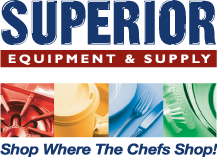Sustainability
Superior’s Sustainability Policy
The Company takes the area of social responsibility seriously and has for many years had policies with respect to business standards, health, safety and the environment. The management believes that positive actions with respect to social responsibility are not only desirable in their own right but are also of potential economic and commercial benefit to the company and considers environmental, social and governance matters for identifying, evaluating and managing risks to the company.
The overall policy is made up of the following underlying elements:
▪Standards of business conduct (Code of ethics),
▪Environment (including climate change),
▪Health & Safety, Employees, Customers, Suppliers and Community.
Superior continues to focus on high impact issues to improve EHS performance across the company and secure greater ownership from line management and employees to understand and address the environment impact through a diverse range of initiatives issues, from improving our paper and plastic recycling to fitting energy saving lights in our warehouses and reducing our fuel consumption,
The major environmental impacts of the company are associated with the management of waste, which is predominantly the packaging that suppliers use for delivering their products to Superior.
Green Products
Superior is taking a proactive approach to sourcing environmentally friendly products for customers and will continue this business area further in the future. For example, we are working with a manufacturer to develop plastic bags from sustainable and renewable sources, such as the tapioca plant and sugar cane.
We also offer our Green Source product line of certified green towel, tissue and napkin products. Green Source Towels, Tissue & Napkins
Many customers are interested in reducing their environmental impact, but currently there is much confusion regarding the terms used to describe the different plastics available (i.e. biodegradable, compostable, degradable).
Biodegradable and Compostable
Biodegradable plastic will degrade as a result of bacterial activity under specific conditions. Compostable plastic, on the other hand, is biodegradable, but the degradation of the plastic has met certain specified standards (American standard ASTM#D6400-99) relating to the rate of biodegradation, maximum residue of material left at a specific point in time and a requirement for the material to have no harmful impact on the final compost or composting process.
Examples of plastics that break down due to a combination of physical and bacterial activity are oil-based products such as polyethylene terephthalate (PET), polyethylene, polypropelene and polystyrene. A proprietary mixture (for example, EPI or D2W) can be added to them to accelerate the breakdown of their chemical structures under certain conditions (these products are sometimes referred to as oxo-biodegradable).
Degradable
Degradable plastics break down in appropriate conditions due either to bacterial activity (biodegradable and compostable plastics) or as a result of physical and chemical impact splitting into small pieces over varying periods of time.
Examples of plastics that break down due to a combination of physical and bacterial activity are oil-based products such as polyethylene terephthalate (PET), polyethylene, polypropelene and polystyrene to which is added a proprietary mixture (for example, EPI or D2W) that accelerates the breakdown of the chemical structure in certain conditions (these products are sometimes referred to as oxo-biodegradable).
Superior is able to source products from all the above materials according to customer requirements. However, due to the differing properties of the above materials, not all products are available in each material.
Recycled
Superior has a range of products made fully or partly from materials that have been recycled, including polyethylene bin liners, carrier bags and hygiene paper. Degradable bags made from recycled plastic are also available. Currently, recycled plastics are rarely used in food packaging because of food safety concerns.
Recyclable or Reusable
These products are made from material that can be recycled. Reusing plastic is preferable to recycling as it uses less energy and fewer resources. Superior can supply “Bags for Life” (e.g. more robust bags which can be made from a variety of materials that can be used more than once).
Operating to Reduce Our Environmental Impact
Awareness of the environment and considering how to reduce Superior’s impact on it is not new for Superior, nor is it a passing phase. Our environmental programs have been in place for more than six years, and we continually review and seek to improve our performance in this area.
At Superior, we focus on sourcing and finding the packaging alternatives our customers need to support their green efforts. Whether it’s foodservice packaging or green chemicals that have less of an environmental impact, Superior is your source.
These products fall into three major categories:
Products that is recyclable.
Products that are from manufacturers utilizing sustainable production practices.
Products that are certified "green."
Corporately, we are focusing on three areas to affect the environment in a positive way:
Reducing landfill waste
Improving fuel efficiency
Reducing energy consumption
Working with our customers and vendors to reduce our mutual impact on the environment is an important Superior business goal. Collectively we can build a more sustainable future.
Reducing Landfill Waste
Increasing Recycling to Reduce Landfill Waste
Superior is focused on strengthening recycling practices at our facilities and our vendors and customers.
Reducing waste is accomplished through a comprehensive program being instituted at our location to recycle plastic, cardboard, aluminum cans and paper. Additionally, our e-warehouse system eliminates paper documents in many warehouse functions.
Superior is also working with our suppliers to eliminate unnecessary transit packaging and to utilize reusable packaging. We're assisting our customers with logistics studies to streamline the supply chain and helping them find innovative ways of improving environmental performance, including reviewing the feasibility of developing a 'closed loop recycling solution.'
We are committed to reducing the environmental impact of our operations. We are also continually developing further ideas on green products as well as providing staff education and customer information.
Together, Superior, our suppliers and our customers are improving the environment at every stage in the distribution process.

